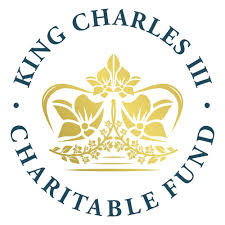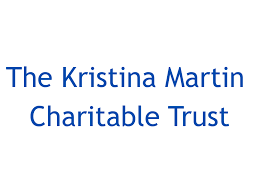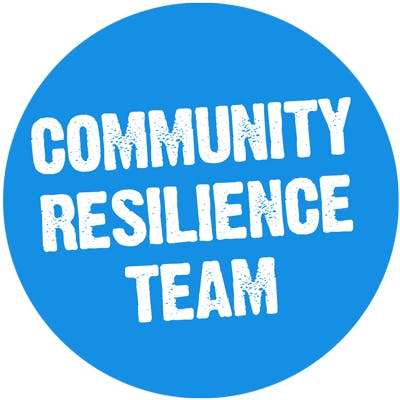Funding Opportunities & Resources
Top Tips - Keep it simple!
Make your application as easy to read as possible - the people who are assessing your application may not have a lot of time or much knowledge of the work you do so being clear is key.
Avoid complicated wording or acronyms if funders understand what you are asking for and how you meet their criteria, they are much more likely to say yes to funding your activity.
Don't Forget
Don’t forget if you are just starting out our get started guides have a range of information including setting up a group writing a constitution and finding and applying for funding
More information about the team and what we can offer can be found on our web pages.
Got an idea for the newsletter – we would love to hear from you!

The Sasha Foundation - Young People with Mental Health Issues
Background
The Sasha Foundation is a registered charity that was established to support groups that work with mental health issues, in memory of Sasha Love.
Objectives of Fund
This fund aims to support charitable organisations working with young people, with a preference for those suffering from depression and mental health issues, or those who are confronting drug abuse issues.
Additionally, the Foundation supports education and healthcare projects and programs in the third world, with a preference for education for young women.
Value Notes
Typically, grants will be up to £10,000 and at most will be for up to 50% of the total cost of the proposed project.
Match Funding Restrictions
Evidence of match funding Is required.
Who Can Apply
Established charitable organisations can apply.
Priority will be given to grassroots community groups and small-to-medium-sized voluntary organisations.
Groups must have:
- A governing document.
- A governing body of at least three unrelated individuals.
- A bank account in the group’s name.
Restrictions
The following are not eligible for funding:
- Individuals.
- Contributions to general appeals or circulars.
- Religious activity that is not for the wider public benefit.
- Public bodies to carry out their statutory obligations.
- Retrospective costs.
- Grant-making by other organisations.
- Privately owned and profit-distributing companies or limited partnerships.
The Foundation typically does not award grants to large charities.
Eligible Expenditure
Funding can be used for running costs (including salaries), projects, equipment, or capital developments.
Funding can be used for new, continuing, or one-off initiatives.
Location
United Kingdom.
How To Apply
The trustees meet a minimum of twice a year to consider applications. The deadlines for applications are:
- 1 April.
- 1 October.
Guidance notes and an application form are available from the Sasha Foundation website.
Completed applications should be submitted by email or post to the Foundation’s accountants.
Documents & links
Contacts
For further information on how to obtain this fund, please contact the following:
- Enquiries
Sasha Foundation
c/o Richardson Swift
11 Laura Place
Bath, BA2 4BL
Email: info@thesashafoundation.co.uk

King Charles III Charitable Fund – Small Grants (2 Week Window)
Background
King Charles III Charitable Fund (KCCF) is the working name of The Prince of Wales’s Charitable Foundation. Founded in 1979 to support the then Prince of Wales's charitable work, it aims to transform lives and build sustainable communities by funding a wide range of good causes within its core funding themes.
Over the past 40 years, the fund has invested more than £100 million in charitable causes in the UK and overseas.
Objectives of Fund
The scheme provides small grants to support independent UK registered non-for-profit organisations for grassroots, community-based projects that fall within its core funding themes:
- Heritage and conservation.
- Education.
- Health and wellbeing.
- Social inclusion.
- Environment.
- Countryside.
Value Notes
Grants of up to £3,000 are available per year for three years.
The total cost of the project should not exceed £50,000.
Approximately 100 community-based organisations are awarded grants each year.
Who Can Apply
Applications are accepted from UK registered not-for-profit organisations, including:
- Charities.
- Charitable incorporated organisations.
- Community interest companies.
- Companies limited by guarantee.
- Excepted charities.
- Unincorporated organisations who can demonstrate a clear social purpose.
Eligible organisations should have:
- An annual income of between £25,000 and £500,000.
- Completed at least two years of activity.
- Less than six months of unrestricted free reserves.
Applicants must have waited at least two years from the date of any previous unsuccessful application or two years after the end date of their last award period.
Restrictions
Funding is not available for:
- Individuals and public bodies.
- Organisations that mainly distribute grants to other organisations.
- Organisations with political associations or interests.
- Covering capital expenditure with the exception of community-based heritage, conservation and restoration projects aimed at preserving the fabric of historic buildings.
- Organisations that are tackling food waste, food insecurity or food poverty in the UK.
- Organisations with consistent late reporting regulatory history.
Eligible Expenditure
The funding is for community projects that fall within the KCCF's core funding themes:
- Heritage and conservation – the preservation of historic and culturally important buildings and traditional craftmanship, together with the sustainable regeneration of communities and the built environment across the globe.
- Education – supporting education, training and employability opportunities through which young people and adults can fulfil their potential. This includes grants to non-profit organisations working to narrow the attainment gap, support broader education through music, the arts, sports and outdoor pursuits, as well as investing in teachers continuing professional development.
- Health and wellbeing – improving the health and wellbeing of people and communities. Grants have enabled people with disabilities, those facing life limiting illnesses and people from disadvantaged and marginalised communities to benefit from improved physical and mental health.
- Social inclusion – promoting social inclusion for vulnerable and marginalised communities through projects that relieve poverty, loneliness and other social issues.
- Environment – protecting and promoting the natural world through efforts including habitat restoration, species conservation, carbon savings and sequestration and circular economies.
- Countryside – investing in the economic and environmental future of the countryside. This includes grants to support sustainable and regenerative agriculture, nature friendly farming practices and a brighter future for those who live and work in rural communities.
Priority will be given to projects serving the most disadvantaged communities.
Funding provided through this programme is restricted and must be used exclusively for the project. Core costs or staff salaries may be covered, provided these expenses are directly attributable to the delivery of the project. For example funding for a youth coordinator’s salary to support the delivery of a youth project will be considered.
Location
UK
How To Apply
The small grants programme is open to applications from 28 January (9am) to 11 February 2026 (12 noon).
In 2025/26, applications are open as follows:
- 6 to 20 August (12 noon) – environment and countryside funding themes. (Now closed.)
- 17 to 31 October (12 noon) – education and heritage and conservation funding themes. (Now closed.)
- 28 January to 11 February (12 noon) – social inclusion and health and wellbeing funding themes.
An online application form and guidance notes are available on the KCCF website.
Contact the KCCF for further information.
Documents & links

Windrush Day Grant Scheme 2026 - Deadline 10th February 2026
Background
MV Empire Windrush arrived at the Port of Tilbury on 21 June 1948 and its passengers disembarked a day later. The ship carried several hundred Caribbean migrants, many of them veterans of the Second World War. Since then, the Windrush has come to symbolise the first movement of mass migration to the United Kingdom in the post-war era.
Following the 70th anniversary of MV Empire Windrush’s arrival in 2018, the Government announced a national Windrush Day on 22 June each year, commencing in 2019.
The Windrush Day Grant Scheme is provided with funding from the Ministry of Housing, Communities and Local Government (MHCLG) and administered on their behalf by Near Neighbours.
Objectives of Fund
The Windrush Day Grant Scheme is part of the Government's work to create more resilient communities, where different religions, cultures and opinions are celebrated, underpinned by a shared set of values that champion tolerance, freedom and equality of opportunity.
In 2026, the scheme's focus is on bringing communities together, across different ages and ethnic backgrounds. It is expected that events and activities will be inclusive and encourage engagement and participation from people from a variety of different backgrounds, including those beyond Windrush communities.
The funding is for projects that focus on one of the following overarching celebratory aims of the Windrush Day Grant Scheme:
- Raise Awareness: To raise awareness of the historical facts and experiences of the Windrush story. This includes the pioneers who arrived on the MV Empire Windrush in 1948, and those who came on vessels and aircraft in the decades after WW2.
- Foster Pride: To foster a greater sense of national pride and recognition of the historic and ongoing contributions made by the Windrush generation and their descendants to UK society. To proactively support and encourage people from different backgrounds to embrace, celebrate and commemorate this aspect of our shared history
- Encourage & Inspire: To encourage and inspire the descendants of the Windrush Generation to become young leaders, pursue their aspirations and contribute to the shared values of UK society.
Proposals should be unique, bold, creative, community-led, and culturally resonant, engaging with the Windrush story and Windrush communities in powerful, enterprising and thoughtful ways.
Value Notes
The budget for 2026 is £500,000.
Grants of between £5,000 and £25,000 are available.
Match Funding Restrictions
Although match funding is not required, it is encouraged. Match funding can include in-kind support.
Who Can Apply
Organisations are eligible to apply if they fit into one of the following three categories:
- They are registered
- Charities
- Exempt charities
- Community interest companies (CICs)/Community Interest Organisations (CIOs)
- Social enterprises
- Community benefit societies
- They meet all the following criteria as demonstrated by submitting additional supporting documents:
- They are established for charitable, benevolent or philanthropic purposes
- They have a governing body with at least three members
- They have a governing document which they can produce
- They can provide accounts demonstrating good financial health across both of the last two financial years
- They are a local authority applying as part of a consortium bid.
Local authorities may include a county council; a district council; a parish council; a combined authority; a London borough council; or another organisation set out in Section 33(1) of the Local Government Act 2003. Schools, libraries and other local authority organisations are encouraged to submit bids in conjunction with their local authority.
Proposals that are led by local councils should demonstrate that the proposal has been developed with the Windrush generation and their descendants, and local community organisations.
Consortium bids will be considered.
Proposals must demonstrate clearly how their project will work with local partners. These might include organisations such as museums, libraries and schools.
Organisations that do not directly work with Caribbean-heritage groups may still apply, but their applications must be created with, or informed by, the Windrush community and they will need to describe their plans to engage and work with Windrush Communities as part of their application.
Restrictions
The following are not eligible for funding:
- Organisations or projects that engage in political or extremist activity or promote partisan political views.
- Retrospective costs.
- For-profit activities.
- Individuals.
- Projects promoting or providing assistance with applications to the Windrush Compensation Scheme.
- Projects outside of England.
- Groups who have received Windrush Day Grant funding more than twice across the years 2021–2025.
- Bidders seeking grants of more than 50% of their annual turnover.
Eligible Expenditure
22 June each year marks National Windrush Day and projects must include a lead event or activity on this date. All other events and activities can take place before 31 July 2026.
This funding will support organisations to deliver projects which they would otherwise not have been able to deliver.
Projects will need to demonstrate value for money:
- Costs should be reasonable and proportionate to the nature of the project outputs/activities, taking into consideration the expected levels of engagement.
- Where staff costs are included, provide a clear breakdown of reasonable hourly rates, with no more than 25% of the requested amount allocated to staff costs.
- There should be a clear breakdown of the costs of the project provided and evidence of trying to get the best value from the funding by making it go further, such as by sharing of premises, people and equipment, recruiting volunteers, sourcing match funding, etc..
Location
England. Proposals are encouraged from outside London and the South East so that Windrush Day is actively celebrated across England.
How To Apply
Guidance notes and the online application form can be found on the Near Neighbours website.
Applications are accepted from 13 January to 10 February 2026 (23:59).
Notification of decisions in early May 2026. Funding distributed to projects in May 2026.
Near Neighbours will be holding the following online bidder workshops:
- 19 January (12:30 - 13:30)
- 20 January (18:00 - 19:00)
- 21 January (10:00 - 11:00)
- 22 January (17:00 – 18:00)
Registration is via the Near Neighbours website
Contact Near Neighbours for further information.
Documents & links
Contacts
For further information on how to obtain this fund, please contact the following:
- Enquiries
Near Neighbours
The Foundry
17 Oval Way
Vauxhall
London
SE11 5RR
Email: windrush@nearneighbours.org.uk











